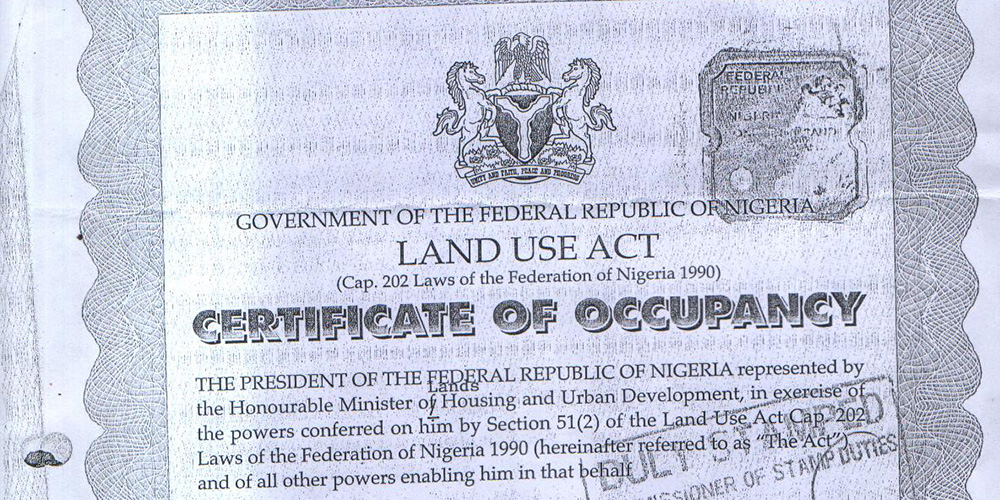Investing in real estate is one of the smartest financial decisions you can make. But without proper knowledge of property titles and documentation, it could easily become your biggest regret.
In Nigeria, property titles are the foundation of any real estate transaction. They do more than prove ownership—they define your rights, protect your investment, and shield you from legal pitfalls.
This detailed guide will walk you through the key property titles in Nigeria, how they work, and what you need to verify before making a property purchase.
Why Property Titles Matter in Nigeria?
A property title is not just a piece of paper—it’s your legal claim to a piece of land or property.
Here’s why they are absolutely critical:
- Proof of ownership: Your official claim to the property.
- Defines your rights: Dictates how you can use, sell, or transfer the property.
- Protects you from fraud and disputes.
- Essential for securing loans or development permits.
- Legally required under Nigeria’s Land Use Act of 1978.
⚠️ Without a valid
your investment is at risk of being invalidated
Common Types of Property Titles in Nigeria (Explained)
1. Certificate of Occupancy (C of O)

A Certificate of Occupancy (C of O), is the most recognized property title in Nigeria, issued by the state government.
- Purpose: Grants the holder the right to occupy and use the land for up to 99 years (residential).
- Variants include:
- Residential C of O (99 years)
- Agricultural C of O (25-28 years)
- Industrial C of O (35 years)
- Family C of O
- Global C of O (issued to estate developers)
Why it matters: It’s your strongest legal proof of ownership and is essential for resale, development, or securing loans.
2. Right of Occupancy (R of O)
Temporary right to occupy land, often for agricultural use or non-permanent structures. It offers shorter tenure compared to a C of O.
3. Deed of Assignment
A Deed of Assignment is a legal document used to transfer ownership rights of a property or land from the current owner (the assignor) to a new buyer (the assignee).
- Purpose: Transfers ownership from one party to another after a sale.
- Legally binding when registered at the land registry.
4. Deed of Lease
A Deed of Lease is a contract between a property owner (lessor) and a tenant (lessee), granting the tenant temporary rights to use the property for a set period.Grants temporary use rights for a fixed period. Unlike ownership, this document doesn’t confer permanent rights.
5. Governor’s Consent
Under Nigerian law, any transfer of land already under a C of O must be approved by the Governor to be valid.
Without this consent, your transaction is incomplete and legally unenforceable.
6. Registered Court Judgment
In case of land disputes settled by court, the judgment itself becomes a valid title document once registered.
7. Excision and Gazette
- Excision: Legal release of land by the government to indigenous communities.
- Gazette: Official government publication listing excised lands.
Buying land with gazetted excision offers security, though many still pursue a C of O afterward for added protection.
8. Deed of Mortgage
Used when property is used as collateral for loans. The lender holds the title until the loan is repaid.
9. Grant of Probate & Letter of Administration
Required when a property owner passes away:
| Document | Purpose |
|---|---|
| Grant of Probate | Issued if the deceased left a valid will. |
| Letter of Administration | Issued when there is no will, allowing the next of kin to administer the estate. |
10. Other Key Land Documents
| Document | Purpose |
|---|---|
| Registered Survey | Defines land boundaries and size, officially registered. |
| Land Purchase Receipt | Proof of payment. |
| Contract of Sale | Pre-agreement outlining sale terms. |
| Development Levy Receipt | Required before starting construction. |
| Deed of Gift | Transfers property without payment (often to family). |
| Power of Attorney | Authorizes someone to act on your behalf in land transactions. |
What You Must Do Before Buying Property
Don’t fall victim to fraudulent or incomplete transactions. Here’s what you should do:
- Conduct a Title Search with Trustcrow
Always verify the title through public records. This confirms:- The property’s legal status.
- No encumbrances (like mortgages or disputes).
Trustcrow simplifies this process—no need for a separate lawyer. We offer professional, fast, and reliable title verification services.
- Ensure Governor’s Consent is Obtained
Especially crucial when buying land already under a C of O. - Verify All Supporting Documents:
- Deed of Assignment
- Registered Survey
- Receipt of Purchase
- Development Levy Receipts
- Engage Professionals (or use Trustcrow)
Legal and real estate experts will help you crosscheck all documents before committing funds.
Don’t Buy Property Blindly—Verify the Title First!
Countless property buyers have lost their hard-earned money due to fake titles, double sales, or disputed ownership. Don’t let that happen to you.
At Trustcrow, we offer a seamless, professional Property Title Verification Service to help you:
✅ Confirm genuine ownership
✅ Ensure all documentation is valid
✅ Avoid fraud, disputes, or legal headaches
Protect your investment—get peace of mind before signing anything.
👉 Verify Your Property Title Now
Final Thoughts
Understanding property titles is not optional—it’s essential.
Titles like the Certificate of Occupancy, Deed of Assignment, Governor’s Consent, and others are the legal foundation of your real estate investment. Skipping proper verification is gambling with your future.
Make sure your property purchase is secure, legal, and stress-free by partnering with trusted professionals like Trustcrow.
Purchase. Property. Safely.
Need more guidance or want to verify the property document today?












